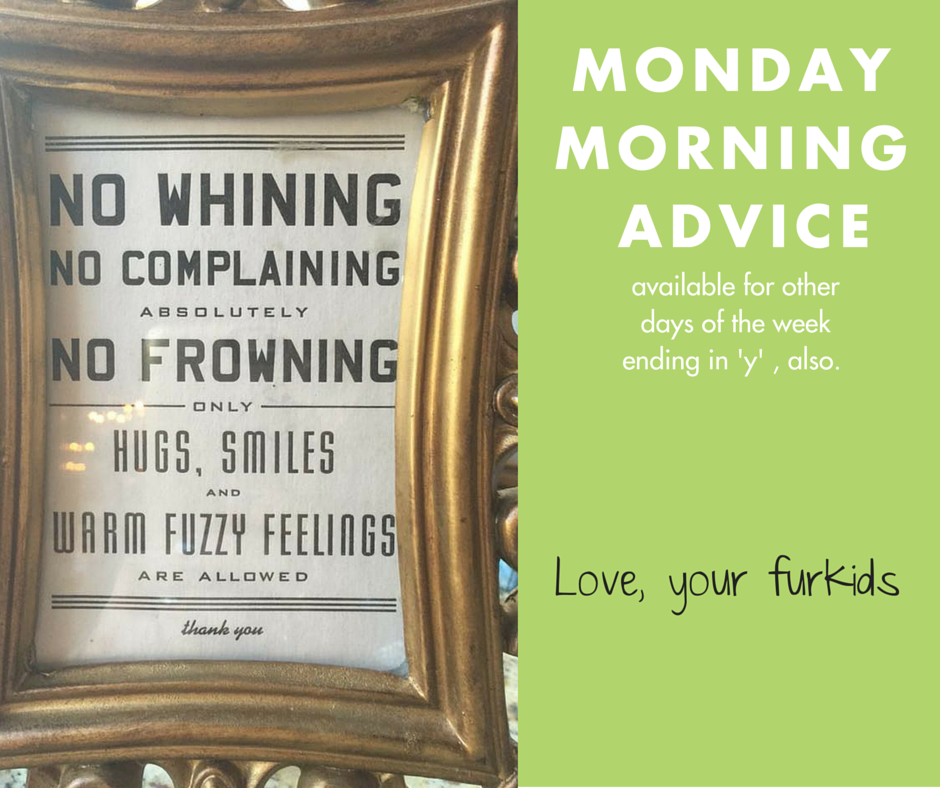How Influencers Can Find Mentors Or Accountability Partners… & What They Are
There has been conversation in the BlogPaws Community recently centered on finding a mentor. Jan Horning of PawBellish asked, “Where can I find a mentor?” This got me wondering how influencers can find mentors or accountability partners… and what they are. There is a difference in roles, if you will, as it relates to what you will gain working with a mentor as compared to what you will gain from having an accountability partner.
The benefit of having either a mentor or an accountability partner is that you have a second set of eyes and a different perspective with which to look at what you’re working on. As work-from-home pet bloggers and influencers, we work in a vacuum much of the year–well, other than when we are all together at the BlogPaws Conference, right?
Let’s first look at the definitions of mentors and accountability partners:
A short definition of a mentor from Merriam-Webster explains a mentor is: “someone who teaches or gives help and advice to a less experienced and often younger person.” According to Wikipedia, an accountability partner is: “a person who coaches another person in terms of helping the other person keep a commitment.” I also found this startling statistic in my research: “Not having an accountable partner to help a person accomplish their goal is one reason 92% of people did not accomplish their New Year’s resolution according to a University of Scranton study.” Wow!
 Mentoring
Mentoring
Mentoring, from what I’ve uncovered and as explained by Merriam-Webster, is that more experienced person is willing to help you more fully understand a concept. For example, I attended the Women In The Pet Industry Network conference, and in a Facebook session I connected with Lisa Doble of BioUrn, and because of some Facebook assistance I offered, she asked, “Would you mentor me in this?” I happily said yes. Why? Because I have the knowledge that she needs, and I believe it will be a mutually beneficial relationship. I may be teaching/mentoring her in one aspect of her business, but I know she has skills and knowledge that I don’t possess and I will ask her to reciprocate in mentoring.
Mentoring, I think, is akin to volunteering or paying it forward. Sure, we could charge for our help and in many cases I would because, well, that’s how I make a living and keep my pets in clothes. Mentoring, though, is a relationship-building relationship. I will be offering Lisa advice and showing her how to learn those nuances of Facebook she doesn’t have, but I won’t be holding her accountable to any metric of performance. If she wants to learn how to run ads, I’ll show her. I won’t be asking her to document the process and report back to me on the success she attained. My role as mentor kind of ends once I have shared with her the information we discussed in our conversation about mentoring. At this point, we haven’t quite determined what it will encompass, so I am merely tossing out examples.
Way back when I wanted to get into publishing and speaking and blogging I “stalked” Yvonne. I attended every Rochester-area conference at which she spoke. I wanted to connect with her and learn from her. I didn’t come right out and say, “Will you mentor me?” but when I started working with her and Tom Collins in their publishing company, I did learn from them. A lot. Yvonne is the reason I am a full-time writer. Tom is the reason I have more than a working knowledge of design and website maintenance. They are the reason I understand both the nuances of writing for an online audience and how to wrestle and bend blog platforms to my will. We had, now that I look back on it, an informal mentoring relationship.
Today, if I were seeking a mentor I would come right out and say, “You’re amazing at XYZ, and I would love for you to mentor me.” I would keep in mind that the person I am asking has no obligation to do so, because he or she doesn’t. A mentor needs to “get something out of the relationship” and that “something” will vary by person. Your potential mentor may simply want to give back, he may want to connect with you as well because you have a skill he wants to learn, she may be looking to kick off a coaching program and mentoring you may help her hone her skills. The reasons why people mentor are as varied as the people who mentor and those who want mentoring.
You, as a mentor
Do you have a skill or talent or a yearning to connect with another pet blogger? Maybe you see a newbie blogger and think, “Wow, if only h/she had done XYZ, their post could have been so much better…” If that’s the case, why not reach out and offer to mentor? Mention, kindly, what you saw that they could improve on and offer your assistance. What’s in it for you to be a mentor?
- Goodwill
- Giving back
- Helping a newbie avoid some of the mistakes you made when you were starting out
Do you have it in you to be a mentor? Do you have a burning desire to work with a particular person and would love for them to mentor you? If so, what are you waiting for?
If you’re the mentee, you should:
- Be respectful of your mentor’s time
- Not take advantage of his or her expertise
- Give back to others as a way to pay it forward
- Take the advice and knowledge your mentor shares and use it to better your business
- Define the parameters of the relationship
Keep in mind that a mentor/mentee relationship could last for years or it could be a mentor relationship for a particular project. Define the roles and know what you’re asking of a potential mentor when you reach out to him or her.
Accountability partner
Two years ago I reached out to a business colleague, Anne McAuley, and said, “Hey, let’s find a way to work together.” Thus was born our accountability partnership, which lead to our starting a joint solopreneur blogging site and project together. What’s in it for us? Well, based on the Stanford study above, we get more done together than we would if we were toiling away alone in our offices; she is in Arizona, I am in New York.
- We set aside time every week to get on the phone.
- We schedule an hour, which means that each of us gets about twenty minutes to talk. (We schedule in time for catching up on our personal lives and friendship as well)
- We come armed with our challenges, our successes, our ongoing projects, what we need to be held accountable for, and any potential clients we can pass along to one another.
- We take notes.
- At the end of the call we set our intention for the upcoming week. For example: I’m going to write two blog posts, reach out to two new clients, and finish the first chapter of my book.
- At the next call, we pull out our notes and ask, “Did you write those posts? Did you reach out to the new clients? What was the result? Did you finish the first chapter? Do you want me to take a look at it?
- Knowing there is someone out there holding you accountable just might make you more productive
There are weeks when Anne and I get on the phone and we have to admit, “I didn’t get to ANYthing on my list.” You know what? Life happens. BUT, if we got on the phone every week and one or both of us said, “I didn’t get ANYthing done,” then we aren’t effective as accountability partners, right?
An effective accountability partner is one with whom you not only feel an affinity, but is someone who will push you and motivate you to perform at your best. If you want a friend, then say, “Hey I’d like to be your friend.” Don’t ask for an accountability partner then not perform. Don’t be an accountability partner who doesn’t perform. What are you getting out of the relationship with your accountability partner if he or she isn’t pushing you or motivating you to be your best? What benefit are either of you gaining if neither of you are moving your business or your projects forward?
Both people in the accountability partnership relationship need to be committed. Why would you want to work with someone who has no follow through? Why would someone want to work with you, get on the phone, go over projects and know that you won’t have any checkmarks on your list? Frankly, I’d be embarrassed if, every week, I was the slacker, wouldn’t you? What if you were the partner who wasn’t performing? Is there a reason you’re not? If you find you don’t value the input or comments from your accountability partner and if you feel you are at an “uneven” level in your business endeavors, then it might be best to simply dissolve the relationship.
An accountability partnership should:
- Propel you to action
- Feed your business goals
- “Force” you to perform
- Hold you to higher standards for your business
- Help you focus
- Teach you to aim higher
- Be mutually beneficial
When seeking an accountability partner:
- Look for someone with whom you have wanted to connect
- Find someone in a similar entrepreneurial endeavor — this way you can both share information as you pursue the same goal OR
- Find someone in a different entrepreneurial endeavor — this way you have an “outsider’s” outlook on your business and your partner will have your “outsider” perspective on his or her business
- Set regular times to meet
- Set expectations for the partnership during the call
Be bold and brave in seeking a mentor or accountability partner
With 2016 rapidly coming to an end and a new year looming, this could be the time to be brave and reach out to a potential mentor or accountability partner. Get the discussions going so when you flip the calendar to January 2017 you are poised for a new year of success.
- Have you ever sought a mentor?
- Have you ever been a mentor?
- Are you an accountability partner right now?
- Are you seeking an accountability partner?
Share your comments and let’s work together to make 2017 the best year yet!
Robbi Hess is an award-winning author, full-time writer, newspaper columnist, writing coach and time-management guru. She works with bloggers and solopreneurs and blogs at All Words Matter.



